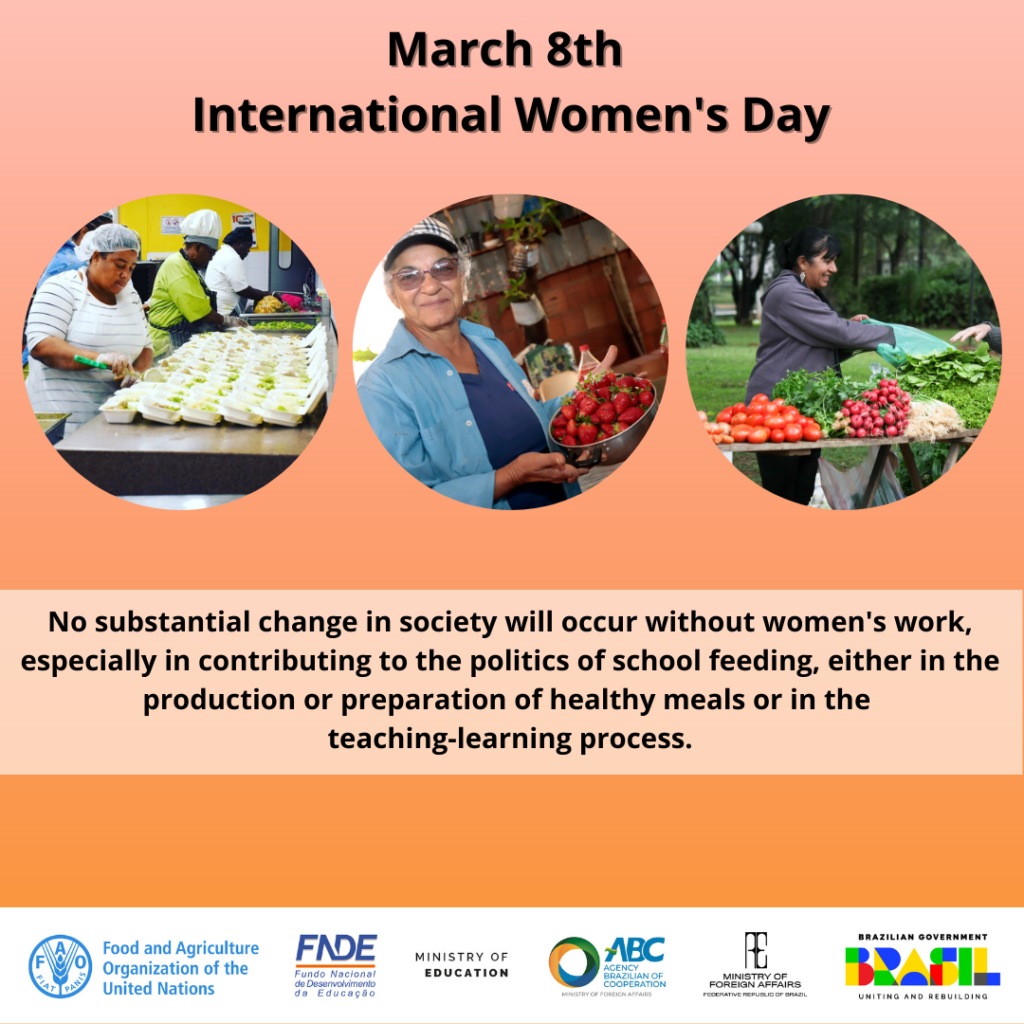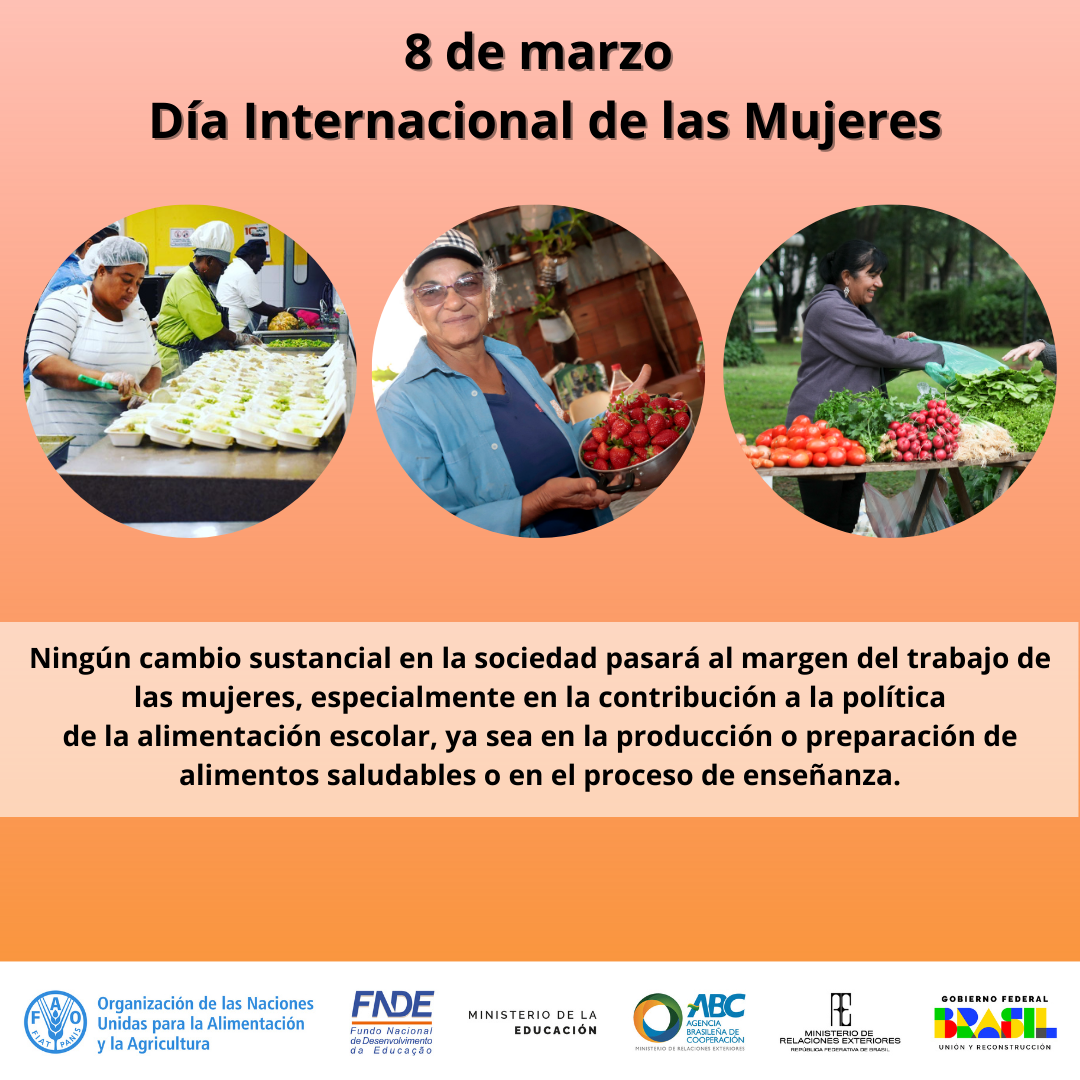In the International Women’s Days, our tribute goes to the souls, the brains and the hearts of our school feeding programs
Najla Veloso*
There are more than 335 million women in Latin America and the Caribbean, of which around 65 million live in rural areas, according to Interamerican Institute of Cooperation (IICA) statistics. They have been living with a history of struggle and conquests for centuries. On this International Women’s Day, we have an immense desire to register how much they make the difference in the history of the world, the society, the family, the school and, especially, the school feeding policy.
At school we will always find them, whether in the figure of the mother who takes the child, the grandmother who takes care of the grandchild, the teacher who receives the students, the director who manages them, the nutritionist who prepares the menu, the cook who prepares it, the mother volunteer, the cleaning assistant who takes care of the environment, the student girls and adolescents, the family farmer who produces the food or the policy manager at school, municipal, state or national level.
They are working women that have two, three or four shifts. In school feeding, they are the soul, the brain, and the heart. Therefore, our tribute today goes to those involved in the task of producing, educating, preparing, managing, and delivering food to more than 87 million students in Latin America and the Caribbean.

About half of that number are girls nurturing their bodies, learning about the food chain, and building the cultural and food foundations of this and the next generation. The school feeding policy has been responsible for guaranteeing the main meal of the day to around 5 million girls in our region.
Whether as a student, teacher, nutritionist or farmer, these women have a great chance of impacting school indicators, dropout rates, obesity, overweight, non-communicable chronic diseases, consumption of processed and ultra-processed foods. In addition to providing income to support thousands of families.
They are great women in a gigantic challenge. They are the protagonists of the sumptuous chain that moves tons of food that every day reach thousands of schools and the plates of more than 387 million students around the world. They are the ones who, together with their colleagues, establish the rules for what will be produced, sold, and eaten at home, on the street and at school.
May this year they get closer to achieving autonomy, equality of treatment, parity in working conditions, social life and, above all, the freedom to be what they want to be. May they be free from all discriminatory biases. May they choose what they want to study, where to live and what to build from their history. May they be protected in any and every space, since their place is at home, at school, on the street, in the countryside, in the rural or urban labor market or in a different country.
May we, as the United Nations and governments, work even harder to guarantee students better food at home and at school, equal opportunities, equity of rights and social justice. And, in this way, definitively, may all school girls, all education workers, all mothers of students, all producers and all of us women be equally protagonists in the development, peace and construction of the society we want.
*Najla Veloso is the regional coordinator of the school feeding project of the Brazil-FAO Cooperation







